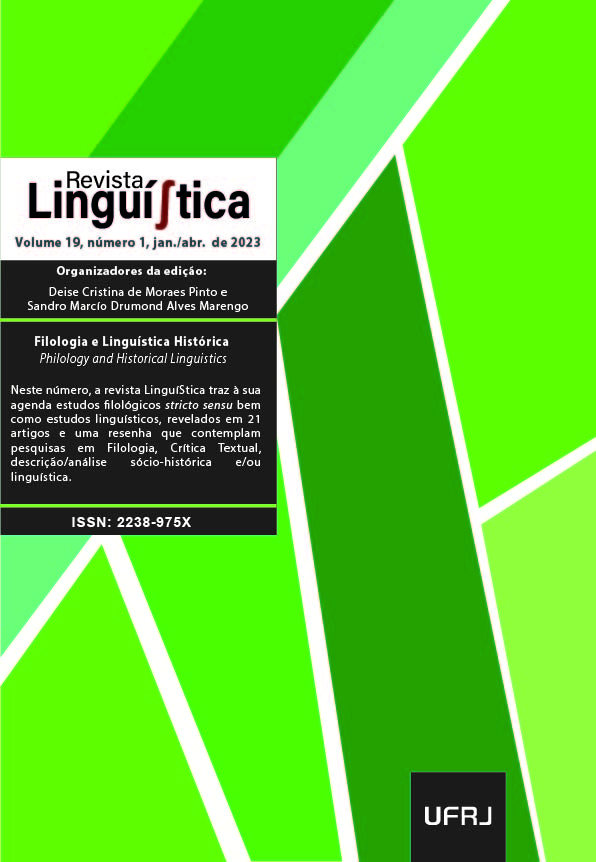Uses of “pero bueno”, “pero vamos” and “pero claro” in coloquial peninsular Spanish
DOI:
https://doi.org/10.31513/linguistica.2023.v19n1a57268Keywords:
pero bueno, pero vamos, pero claro, functionalism, Spanish.Abstract
This paper aims to present the roles of the joinor pero in combination with bueno, vamos and claro in a spoken Spanish corpus from a functionalist perspective. The theoretical and methodological framework used is the Functional Discourse Grammar (Hengeveld; Mackenzie, 2008). From this perspective, it was verified that pero, when accompanying elements like bueno, vamos, and claro, can confer contrastive meaning and encode the rhetorical function Concession, when it acts as a Discourse Act operator, or it can act exclusively in monitoring the interaction. These two uses are encoded differently at the Phonological Level, which was verified using the Praat program. When acting as an Act operator, pero presents the descending-ascending complex entonational pattern; on the other hand, when acting in monitoring interaction, pero, in combination with those on the screen, presents the descending entonational pattern. The research universe is based on the PRESEEA corpus (Proyecto para el Estudio Sociolingüístico del Español de España y de América), a database available online.Downloads
Published
Issue
Section
License
Copyright (c) 2023 Revista Linguí∫tica

This work is licensed under a Creative Commons Attribution-NonCommercial 4.0 International License.
Authors who publish in the Revista Linguí∫tica agree with the following terms:
The authors maintain their rights, ceding to the journal the right to first publication of the article, simultaneously submitted to a Creative Commons license permitting the sharing with third-parties of published content as long as it mentions the author and its first publication in the Revista Linguí∫tica.
Authors may enter into additional agreements for the non-exclusive distribution of their published work (for example, posting in online institutional or non-profit repositories, or book chapters) so long as they acknowledge its initial publication in the Revista Linguí∫tica.

The journal Revista Linguí∫tica is published by the Post-Graduate program in Linguistics of UFRJ and employs a Creative Commons - Attribution-NonCommercial 4.0 International (CC-BY-NC).









